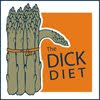The “physical” aspects of digestion begin in the mouth. Please consider what goes in our mouth is generally a volunteer action! For the most part we choose what we eat, how many times we chew our food, and the pace (fast/slow) of the eating experience. Some may argue that digestion begins before we eat as the smells, sounds, and overall environment affect us. To some extent I’d agree with this. It is a biological fact that if we are stressed our digestion is adversely impacted. No reason to digest if you’re running away from a lion or tiger, right? And, if we are in a pleasant environment, calm and relaxed, this will aid our digestion. Nothing like the smell of grandma’s cooking to get the digestive juices flowing. But, at the end of the day if we gulp down crappy food we’re going to have digestive issues. And, if we eat crappy food this will ultimately lead to erectile dysfunction.
In our mouth we have our teeth and the salivary glands (of which the parotid is the largest). Our teeth are very important as they are the first stage in breaking up our food so we can process it. The more we chew and break up the food, the more surface area there is to be acted upon. Saliva contains mucus, lysozymes, and amylase. Believe it or not, we make 1-2 quarts of saliva per day! Saliva should be alkaline with a pH of 7.4, although it can vary throughout the day. If you would like to test your saliva you can purchase pH paper. The most accurate reading is in the morning after waking up. If saliva is acidic (pH < 7) it will interrupt digestion of carbohydrates in mouth. The saliva pH is indicative of general health of the liver.
Mucus is important because it lubricates the food to help it pass through the esophagus. Lysozymes poke holes in the walls of bacteria which weaken them so they can be taken care of (eliminated) by the stomach. Amylase is an enzyme and it begins the digestion of carbohydrates. Ever notice how if you have a piece of bread in your mouth for awhile it starts to taste sweet? This is the carbohydrate breaking down into sugars. It appears the body was designed to handle carbohydrates first.
So what we do in the mouth is very important. If we do not chew our food sufficiently more work has to be done in the stomach to break the food down. Remember – this is a “north to south” process. How many times to chew? I’ve heard anywhere from 20-40 chews per mouthful. The 40 seems a bit stretching it, but 20 seem reasonable. And, the more we chew the more saliva is produced and mixed with the food providing the mucus, lysozymes, and amylase required. Not enough mucus and the food has a harder time getting to the stomach. Too few lysozymes and it is more likely for harmful bacteria to survive. Short on amylase and carbohydrates do not get broken down and begin to ferment in the stomach since their next chance for activity is in the small intestine (but I’m getting ahead of myself). I’m sure you can see how each step has an impact on what takes place next. If the initial job is not done correctly the next step needs to catch up or make an adjustment.
.jpg)



